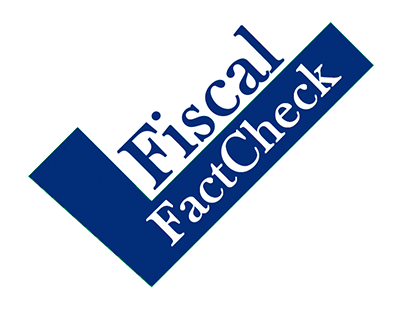Have Stock Market Gains Reduced the National Debt?
On Fox News last night, President Trump claimed the growth in the stock market has reduced the national debt. It has not. The two measures are not directly related to one another: one is the total value of the publicly-traded business sector in the United States, and the other is the sum of the federal government's explicit liabilities.
President Trump said:
The country — we took it over and owed over $20 trillion. As you know the last eight years, they borrowed more than it did in the whole history of our country. So they borrowed more than $10 trillion, right? And yet, we picked up $5.2 trillion just in the stock market.
Possibly picked up the whole thing in terms of the first nine months, in terms of value. So you could say, in one sense, we’re really increasing values. And maybe in a sense we’re reducing debt. But we’re very honored by it. And we’re very, very happy with what’s happening on Wall Street.
The President is correct on some narrower points. It's true the gross national debt is around $20 trillion, and it is also true that it nearly doubled in the eight years prior to his term. Gross debt didn't rise by "more than $10 trillion" over that period, but it did rise by $9.3 trillion (from $10.6 trillion to $19.9 trillion), which is close. (Note our previous factcheck on how much of this debt increase is attributable to President Obama).
The President is also correct that the stock market has increased in value. Setting aside whether stock values have grown $5.2 trillion, the Dow, Nasdaq, and S&P 500 have all increased at least 19 percent since Election Day. It's unclear whether Trump is referring to growth since Election Day, as he stated in Harrisburg yesterday, or since Inauguration Day, as "the first nine months" quote implies.
But there is no "sense" in which higher stock market value led to lower national debt. The two numbers are completely unrelated to each other. Stock market value represents the total cash value of stocks held by individuals, businesses, pension plans, and other investors across the country and the globe. Gross debt represents the total amount owed by the federal government, and therefore the total value of bonds held by individuals, businesses, pension plans, the Federal Reserve, foreign governments, state and local governments, and even the federal government itself through various trust funds (see our Q&A on Gross Debt versus Debt Held by the Public for more information).
Since the combined value of stocks held by all individuals has almost no relation to the stock of debt owed by the federal government, an increase in one does not result in any decrease in the other.
There is one small exception, which is that rising stock values could result in modestly larger tax revenue from capital gains and retirement account withdrawals. But only a very small share of stocks are actually taxed in a given year, and that tax applies to only a small share of their value. Last year, capital gains taxes accounted for only 4 percent of total federal revenue – even a record jump in capital gains next year would only reduce further borrowing by about $50 billion, which is less than a tenth of what we are projected to borrow next year.
Finally, even setting aside the relationship between the stock market and the debt, it is important to note that gross federal debt is continuing to rise. When President Trump took office, gross debt totaled $19.9 trillion; today, it's $20.4 trillion. And it is projected to grow to $30.7 trillion by 2027. Even under the President's own budget – which relies on phony economic assumptions, magic asterisks, double counting, and aggressive spending cuts – gross debt would reach $24.7 trillion by 2027. Debt is not declining in any scenario.
Gains in the stock market and change in the national debt are two completely different things. While an improving market may have indirect benefits for the budget, there is no sense where rising stock value translate to nominal reductions in the government's gross debt.


